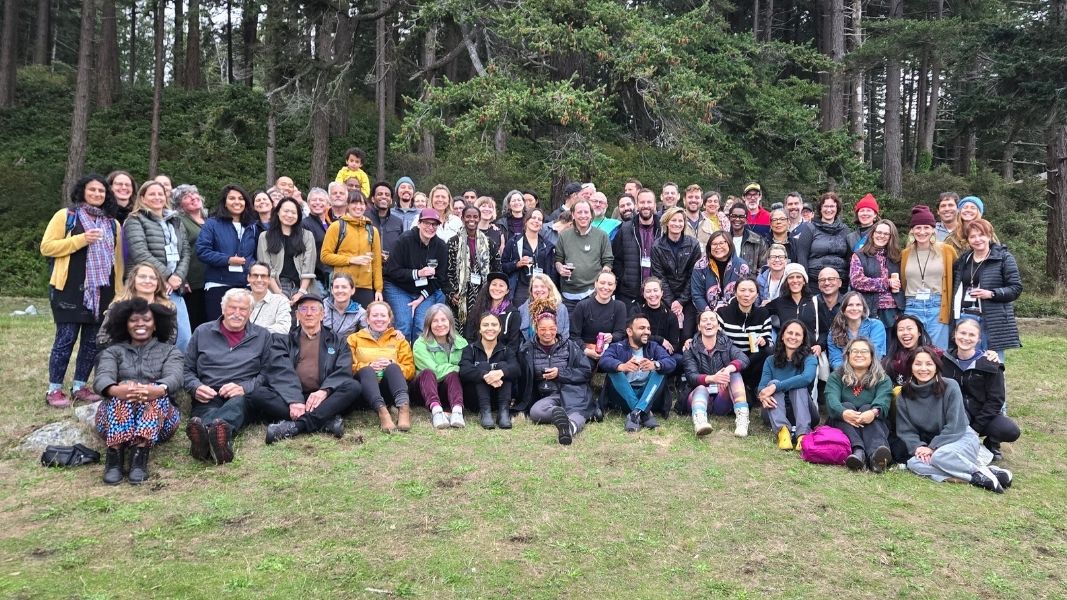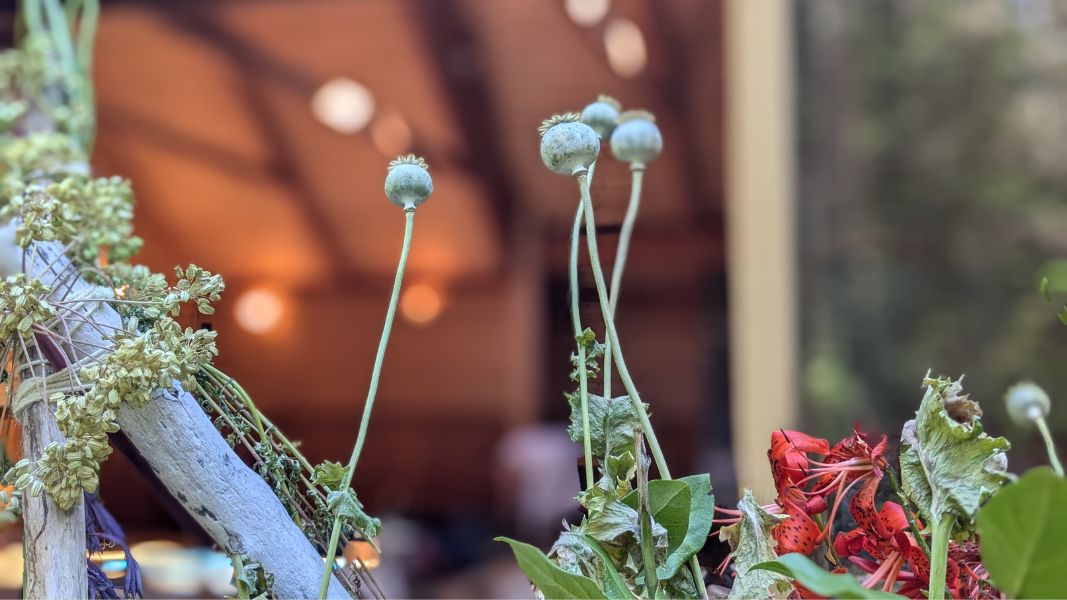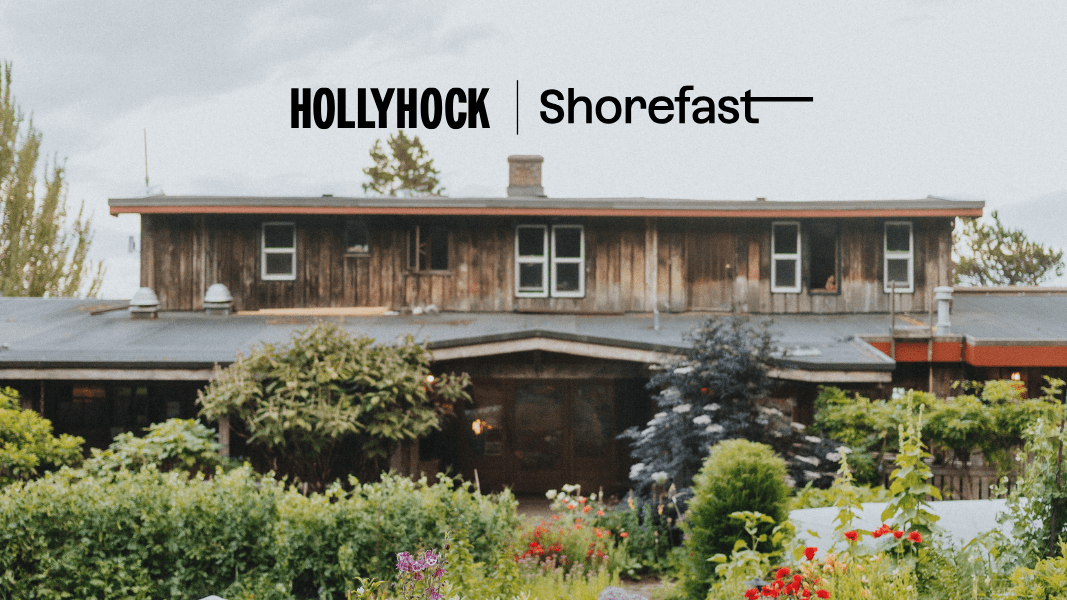Following SCI 2014, Mike shared his take on how we meet the challenges of our time and be effective leaders.
This article by Mike Rowlands originally appeared on Junxion Strategy’s website on June 23, 2014.
How Can We Get There from Here?
Reflections on Social Change Institute 2014. It feels like nothing is simple any more. Complexity permeates all that we do in the social impact community, and the bigger the challenges we aim to take on, the more difficult the solutions are to define. This was a central theme across all the keynotes, workshops, breakouts and one-on-one consultations at last week’s Social Change Institute, an annual gathering of change makers hosted at Hollyhock.
Take for example the news that’s filling the airwaves and newsprint today across Canada: the Government of Canada’s endorsement of the Enbridge Northern Gateway pipeline. This project, variously framed as ‘nation building,’ and ‘runaway corporate greed’ is almost without question the most controversial, ire-raising environmental challenge since the ‘War in the Woods.’
Milestones on the long, winding path to this approval have included a National Energy Board report that outlines 209 conditions that Enbridge must meet, the Provincial Government in British Columbia setting five strategic requirements that it demands must be met before the pipeline is built, and a diversity of misleading communications to BC’s public and First Nations from Enbridge.
And the road continues to wind: First Nations and others are vowing that the pipeline will never be built, and have launched at least five lawsuits to prevent it. Reportedly two-thirds of British Columbians don’t want it to be built, and a petition for a Provincial referendum on the project is underway. And over 22,000 25,000 people have signed the Hold the Wall pledge, committing to using all lawful means to stop the project.
The debate pits economics and resource development against environment and community development. It pits large, international business interests against local citizens and First Nations. And it sets two different views of Canada against one another—one grounded in democracy and the realities of climate change, and the other in industrial development and financial opportunity.
Yet despite the complexities of the Northern Gateway approval process, and despite the diverse voices on both sides of the debate, one thing is clear: when the people stand up and say ‘no,’ governments have to listen.
Perhaps this is why the Government of Canada elected to issue the news with a simple press release, and with no Ministerial support. Hopefully, they see the challenges ahead, and are as confident as those ready to blockade in the woods that this pipeline will never be built.
When is approval not approval? When the people stand up and say ‘no.’
Such was the certainty among the nearly 100 non-profit leaders, philanthropists and social innovation leaders gathered for the annual Social Change Institute last week. Predictably, the affirmed environmentalists were concerned about the looming announcement. Perhaps less predictably, economists, politicos and social scientists were equally concerned. For them, this is an issue of social license, of communities’ will, and of First Nations’ lawful right to decide who and what ventures on to their land.
One might be forgiven for assuming SCI is an environmentalist sit-in, a rallying point for tree huggers and sentimentalists. Nothing could be further from the truth.
Overt and frequent were conversations about Canadians’ diverse priorities, the importance of resource development to our national economy, and a respect for distinct worldviews at opposite ends of the political spectrum—and every point in between. To engage deeply in Social Change Institute is to broaden one’s perspective: ‘Seek first to understand’ might have been the mantra of the week.
The deeper lesson from the dialogues was that this moment in time is part of a bigger process of insight, inspiration and impact. The challenges upon us in an increasingly populous, urbanized and warm world are like none humanity has faced before. To believe any one of us has the answers is to entrench in naiveté.
Few leaders can navigate the complexities of all these competing priorities. Yet simple tenets still rule:
This article by Mike Rowlands originally appeared on Junxion Strategy’s website on June 23, 2014.
How Can We Get There from Here?
Reflections on Social Change Institute 2014. It feels like nothing is simple any more. Complexity permeates all that we do in the social impact community, and the bigger the challenges we aim to take on, the more difficult the solutions are to define. This was a central theme across all the keynotes, workshops, breakouts and one-on-one consultations at last week’s Social Change Institute, an annual gathering of change makers hosted at Hollyhock.
Take for example the news that’s filling the airwaves and newsprint today across Canada: the Government of Canada’s endorsement of the Enbridge Northern Gateway pipeline. This project, variously framed as ‘nation building,’ and ‘runaway corporate greed’ is almost without question the most controversial, ire-raising environmental challenge since the ‘War in the Woods.’
Milestones on the long, winding path to this approval have included a National Energy Board report that outlines 209 conditions that Enbridge must meet, the Provincial Government in British Columbia setting five strategic requirements that it demands must be met before the pipeline is built, and a diversity of misleading communications to BC’s public and First Nations from Enbridge.
And the road continues to wind: First Nations and others are vowing that the pipeline will never be built, and have launched at least five lawsuits to prevent it. Reportedly two-thirds of British Columbians don’t want it to be built, and a petition for a Provincial referendum on the project is underway. And over 22,000 25,000 people have signed the Hold the Wall pledge, committing to using all lawful means to stop the project.
The debate pits economics and resource development against environment and community development. It pits large, international business interests against local citizens and First Nations. And it sets two different views of Canada against one another—one grounded in democracy and the realities of climate change, and the other in industrial development and financial opportunity.
Yet despite the complexities of the Northern Gateway approval process, and despite the diverse voices on both sides of the debate, one thing is clear: when the people stand up and say ‘no,’ governments have to listen.
Perhaps this is why the Government of Canada elected to issue the news with a simple press release, and with no Ministerial support. Hopefully, they see the challenges ahead, and are as confident as those ready to blockade in the woods that this pipeline will never be built.
When is approval not approval? When the people stand up and say ‘no.’
Such was the certainty among the nearly 100 non-profit leaders, philanthropists and social innovation leaders gathered for the annual Social Change Institute last week. Predictably, the affirmed environmentalists were concerned about the looming announcement. Perhaps less predictably, economists, politicos and social scientists were equally concerned. For them, this is an issue of social license, of communities’ will, and of First Nations’ lawful right to decide who and what ventures on to their land.
One might be forgiven for assuming SCI is an environmentalist sit-in, a rallying point for tree huggers and sentimentalists. Nothing could be further from the truth.
Overt and frequent were conversations about Canadians’ diverse priorities, the importance of resource development to our national economy, and a respect for distinct worldviews at opposite ends of the political spectrum—and every point in between. To engage deeply in Social Change Institute is to broaden one’s perspective: ‘Seek first to understand’ might have been the mantra of the week.
The deeper lesson from the dialogues was that this moment in time is part of a bigger process of insight, inspiration and impact. The challenges upon us in an increasingly populous, urbanized and warm world are like none humanity has faced before. To believe any one of us has the answers is to entrench in naiveté.
Few leaders can navigate the complexities of all these competing priorities. Yet simple tenets still rule:
- In order to understand, we must meet, connect and share perspectives and ideas. Face time always beats Facebook.
- Politeness counts. While rhetoric and bombast might win headlines and sound bites, the communicators make progress—and communication is at least 50% listening.
- Each of us knows more when we work openly with others. If the challenges are too complex for any one of us to understand in whole (and they are), then our ability to work together is essential to achieving justice, peace and sustainability.
Last, but certainly not least, no leader was ever effective without first understanding their own self. Understanding our own capacity and role, managing our own energy and skills, and continuing to develop as leaders and as people—these are the essential work of progress. This is the simplicity on the other side of complexity. And ultimately, this is the lesson of Social Change Institute 2014.
Social Change Institute takes place at Hollyhock on Cortes Island, BC, each June.










